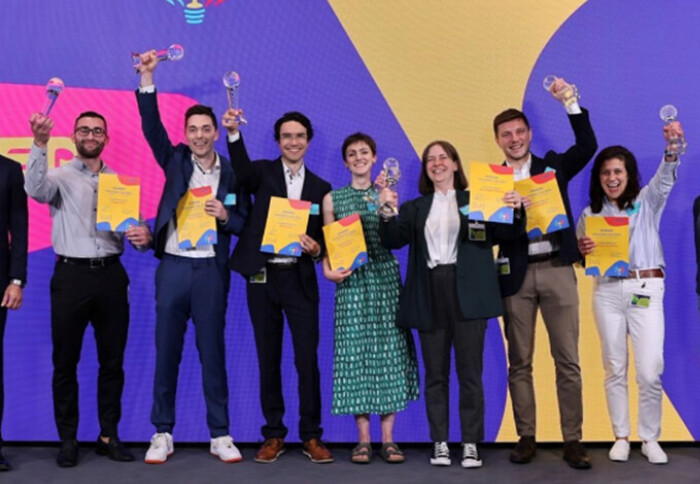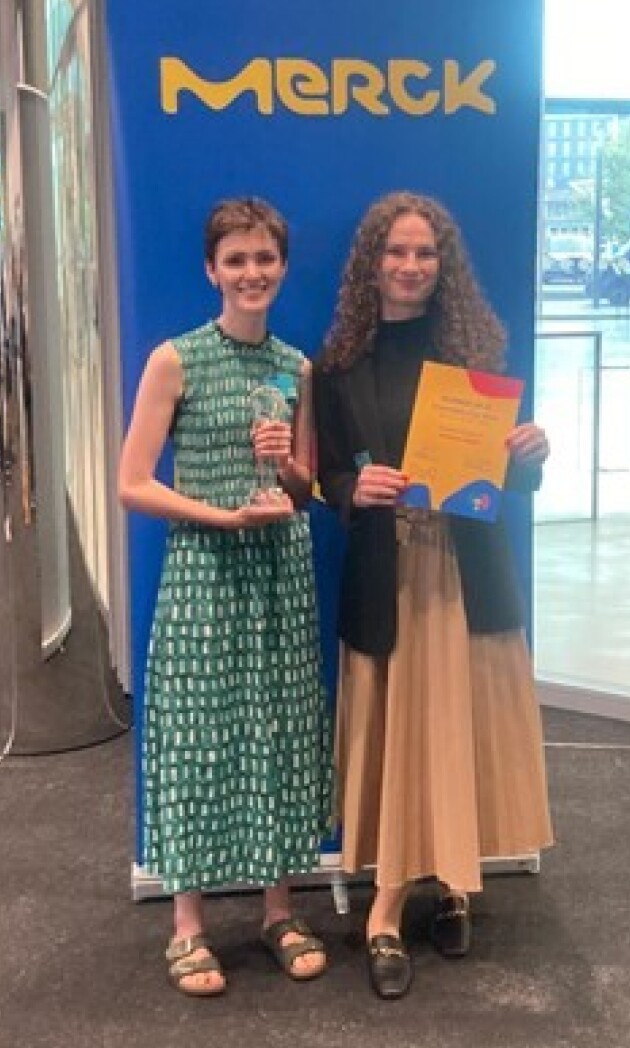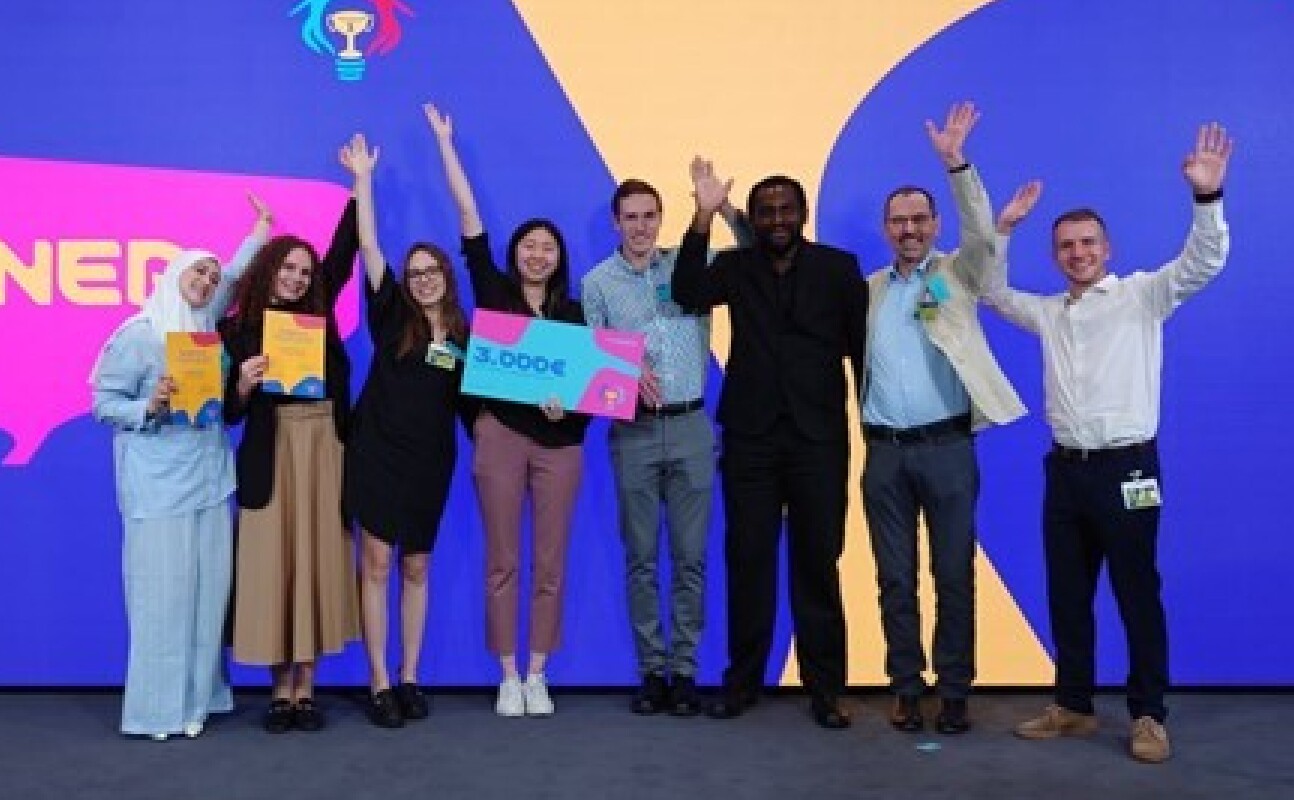Merck Innovation Cup – Winner and Runner Up Team

Dr. Janine Gray with her winning team Medicinal Chemistry
Researchers represented the Tate group in the Merck Innovation Cup winning first place and runner up
The Merck Innovation Cup is a science competition where researchers from all over the world gather into teams, develop an innovative idea and business plan, and pitch their project to the Grand Jury. This year, 7 teams (Medicinal Chemistry, Synthetic Biology, Neurology and Inflammation, Oncology, Smart Manufacturing, Digital Health and Neuroinspired AI Inference) took part in the competition from the 20th – 26th July near Darmstadt, Germany.
The Tate group has had two members competing in this year’s edition of the Cup, a big success for the group given the low acceptance rate (<1%).

Dr. Janine Gray (winner of the Cup) and Vanessa Rogga (Runner Up II).
Dr. Janine Gray (postdoctoral researcher in the Tate group) competed within the team Medicinal Chemistry and won first place (20 000 €) with an innovative idea on reducing attrition rates in early drug discovery. Congratulations Janine and team: Ann-Sophie Paschke (ETH Zürich), Daniel Crusius (University Oxford), Gregory Kyro (Yale University), Ludwig Bauer (University Oxford), Marius Lutz (University Tokyo) and the team coach Stacey-Lynn Paiva (Springer Nature).
Vanessa Rogga (PhD student in the Tate groupcompeted for the team Synthetic Biology and her team was Runner Up II (3000 €) with an innovative idea for a new therapeutic principle. Vanessa’s team was coached by Tate group alumnus Andrii Gorelik, who won the Cup twice (2020., 2021.). Congratulations Vanessa and team: Abdulrahman Adam (Harvard Medical School), Daniel Griffith (Washington University St. Louis), Emily Zhang (Harvard University), Marija Stefanovic (University of Belgrade)Wid Alrashidi (Kingabdulaziz University) and the team coach Andrii Gorelik (Harvard Medical School).

Vanessa Rogga with her team Synthetic Biology.
Article text (excluding photos or graphics) © Imperial College London.
Photos and graphics subject to third party copyright used with permission or © Imperial College London.
Reporter
Edward Bartlett
Department of Chemistry